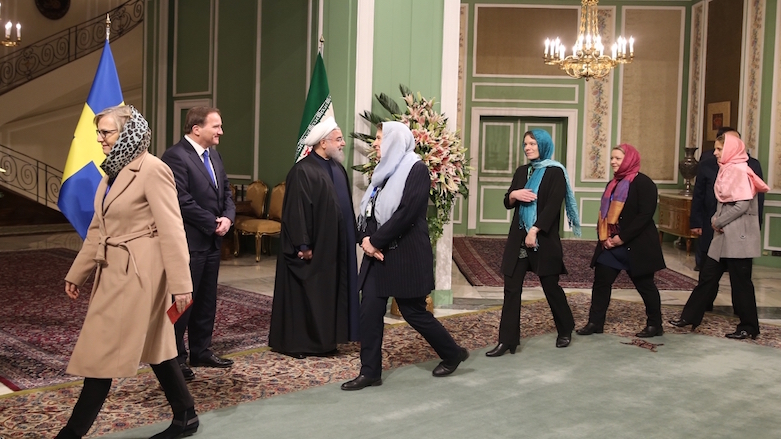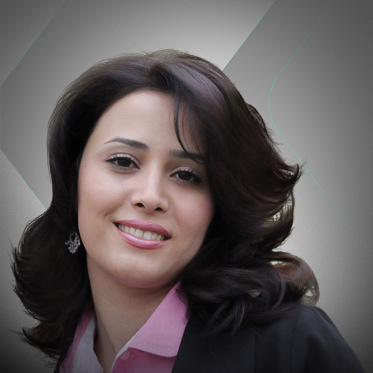Sweden's feminist government criticized for wearing hijab while visiting Iran

LOS ANGELES, United States (Kurdistan24) – Social media users on Tuesday expressed disappointment that Sweden’s feminist government wore headscarves and long coats while visiting Iranian leaders, undermining Iranian women’s protest to the compulsory hijab.
While walking before Iranian President Hassan Rouhani, Sweden’s self-declared “first feminist government in the world” Trade Minister Ann Linde and other female members adhered to the compulsory hijab rule in Iran.
The woman agreed to the discriminatory rule forcing all Iranian women to follow the dress code, regardless of their religion and personal choice.
As a Muslim-majority nation, an Islamic dress code is imposed in Iran forcing women to cover their body and hair.
Many Iranian women view the strict dress code a breach of their rights, considering a group of Jews, Christians, Baha'is, and other religious minorities live in Iran and have to abide by the law.
UN Watch, a human rights NGO in Geneva, said the Swedish government’s behavior was in contrast with Stockholm’s promise to promote an international “gender equality perspective.”
The NGO added it was counterproductive to the government’s “feminist foreign policy” where “equality between women and men [was] a fundamental aim.”
“If Sweden really cares about human rights, they should not be empowering a regime that brutalizes its own citizens while carrying out genocide in Syria,” UN Watch executive director Hillel Neuer stated.
Additionally, Iranian women’s right activist Masih Alinejad urged female European politicians “to stand for their own dignity” and refuse to submit to Iran’s dress code.
“[European politicians] ignore millions of those women who send their photos to me and put themselves in danger to be heard,” Alinejad recently said at the European Parliament.
Editing by Karzan Sulaivany
